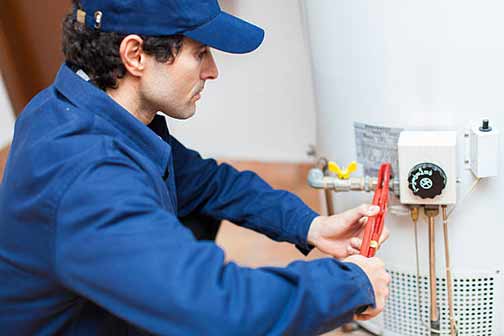
Your water heater will act up at some point; this is guaranteed to happen, says First Providence Management team. When your water heater malfunctions, what should you do? Does it make sense to call an expert for every water heater problem in your home? Or are there water issues that you should deal with yourself?
As with all appliances and systems in your home, it is essential to know the basic steps for maintaining your water heater. This knowledge will not just save you money and the time you would have wasted waiting for a professional, it can help you avert water heater emergencies.
However, it is also important to know the limits of your DIY abilities. Incorrectly applied DIY skills become a problem. Instead of helping you save money, wrongly applied DIY skills will cost you money by complicating rather than solving your water heater problems.
What water heater issues in your home should you fix yourself and which ones should you hire a professional plumber to fix? In this post, you will find an easy-to-understand list of water heater issues that should be DIY-ed and those that should be left to a professional.
You may DIY these water heater problems
Maintaining proper airflow and clearance
Your water heater needs at least two feet of space all around it. This ensures proper ventilation and easy access to the unit during emergencies. A crowded water heater is likely to overheat and pose a fire hazard. It is also harder to spot leaks when the water heater is crowded.
Flush the water heater tank
This is an essential step for the optimal functioning and longevity of your water heater. Despite how essential this task is, it is a job you can do yourself. Flushing a water heater tank is easy and safe, as long as you follow the right steps.
Test the Temperature and Pressure Relief (TPR) valve
The TPR valve is a safety feature on the water heater tank. If pressure and temperature levels inside the tank get too high the TPR valve opens to release some excess. The TPR valve keeps your water heater tank from exploding. Knowing how to test it is essential.
Check the Anode Rod
The anode rod is a feature inside that tank that protects it from corrosion. It draws corrosive ions away from the tank by attracting them to itself. Eventually, the anode valve will corrode and the water heater tank will become exposed. The anode rod should be checked to see if it needs to be replaced.
Adjust the temperature settings
You want to understand the temperature control settings of your water heater. Setting the temperature too high (up to 140 degrees) is often unnecessary. At 120 degrees your water will be warm enough without any risk of scalding and you will save on energy. Every ten degrees of lower temperature equals 5% energy savings.
Insulate your water heater
Insulating the water heater and its connecting pipes will improve efficiency by reducing heat loss from the system. A fiberglass jacket is the best way to insulate the tank, but you should be careful. This step helps a lot if you have an older water heater.

If your water heater is leaking, shut off the power or gas and call a professional plumber.
Do NOT DIY these water heater problems
Strange sounds from your water heater
Rumbling, creaking and popping sounds from your water heater signify excessive sediment buildup inside the tank. If you flush the water heater regularly, as recommended above, you will not have this problem. If the unit makes strange sounds, it could crack and leak when you try to flush it. A noisy water heater may need to be replaced; an expert can help you make the right decision.
Leaks
Leaks in the connecting pipes of the water heater and the unit itself should be left to an expert. Dealing with water heater leaks comes with the risk of burns and electrocution. If your water heater is leaking, shut off the power or gas and call a professional plumber.
Discolored water from your water heater
This is a sign of severe rust in your water pipes or inside the water heater tank. It could also mean that your main water line has burst and is admitting soil into your water supply. Odd-smelling, metallic-tasting or discolored water is bad for your health. You need an expert to fix this problem.
Troubleshooting your water heater
If your water heater is acting up and you don’t know the problem, you need an expert to troubleshoot the system. For instance, the water temperature is unpredictable (too hot or too cold) or the water heater is not producing any hot water at all or enough hot water.
Lastly, as a rule, you want to leave all water heater repair and water heater replacement services to the experts. Expert advice is also necessary when buying a new water heater. An experienced plumber will ensure the new system is right for your home’s hot water needs.